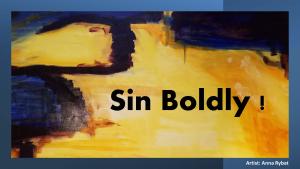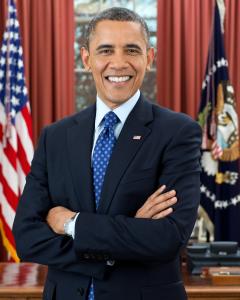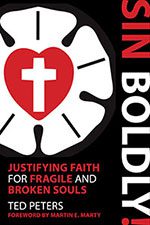 Sin boldly! Really? Yes. To sin boldly means two things. First, relish and enjoy the freedom given you by God’s grace. Second, make moral decisions based on your best judgment. Then, proceed to act. None of your moral judgments will be pure and undefiled. So, proceed to sin boldly! (Artist: Anna Rybat)
Sin boldly! Really? Yes. To sin boldly means two things. First, relish and enjoy the freedom given you by God’s grace. Second, make moral decisions based on your best judgment. Then, proceed to act. None of your moral judgments will be pure and undefiled. So, proceed to sin boldly! (Artist: Anna Rybat)
Here is the key. If we are justified by God’s grace in our faith, then we do not need to justify ourselves. We do not need to purify ourselves by scapegoating others. We do not need to claim innocence on the grounds that we did nothing rather than risk making a mistake. Why? Because God has already rightwised us–justified us–by grace. Peter Marty’s Reformation sermon on 10.31.2021 helps us grasp this.
This is the fifth in our series: (1) Sin? Really? (2) Sin as Self-justification; (3) Sin and the Visible Scapegoat; (4) Sin and the Invisible Scapegoat; plus (5) Sin Boldly!
Other Patheos columnists such as Arminian Roger Olson rely on the traditional term, original sin. This is an indispensable term, to be sure. As an exercise in public theology, I here attempt to employ the Christian dialectic between sin and grace to illuminate the darker recesses of both private and public life.
Spiritual Bullies and Guilty Consciences
Some of us within the circle of faith fear God. And we fear our conscience, as if our conscience were placed by a demon within our soul to scold us, haunt us, enslave us. Recall how Patheos columnist, Mathew Distefano, describes those burdened by guilt over sin. “Evangelicals focus so heavily on sin that they are living in fear. Their universe is one that would strike fear in the heart of anyone who affirms it. Perpetual hell. Eternal damnation. Everlasting torment. FEAR. FEAR. FEAR.” The fear driven soul becomes a fragile soul, perhaps even a broken soul.
Cathleen Falsani recoils at Christian sermonizers–preachers whom she calls spiritual bullies (Falsani 2008, 100). They man their pulpits like a captain on the bridge to manipulate our already innate anxieties and turn timidity into terror. The perpetual fear of eternal damnation turns a fragile soul into a petrified self. We fragile ones go through the motions of life, but we don’t really live it.
God’s grace is aimed a forgiving us of our sin, at filling our heart with peace, joy, freedom, and love. It’s more than merely a tragedy when God’s grace cannot be heard even within the Christian circle. Yet, once God’s forgiving and justify grace lodges in your or my soul, the result is peace of mind. the result is a robust soul expressed as liberating love for both God and neighbor.
Where does “Sin Boldly!” come from?
Where do we get the maxim to sin boldly! It comes from a letter written by Martin Luther (1483-1546) to his younger colleague at Wittenberg University, Philip Melanchthon (1497-1560).

“If you are a preacher of grace, then preach a true and not a fictitious grace; if grace is true, you must bear a true and not a fictitious sin. God does not save people who are only fictitious sinners. Be a sinner and sin boldly, but believe and rejoice in Christ even more boldly, for he is victorious over sin, death, and the world. As long as we are here [in this world] we have to sin. This life is not the dwelling place of righteousness, but, as [Saint] Peter says, we look for new heavens and a new earth in which righteousness dwells. It is enough that by the riches of God’s glory we have come to know the Lamb that takes away the sin of the world. No sin will separate us from the Lamb, even though we commit fornication and murder a thousand times a day. Do you think that the purchase price that was paid for the redemption of our sins by so great a Lamb is too small? Pray boldly—you too are a mighty sinner.” (Luther 1961-1986, 48: 281-282)
Only sinners in this life make moral decisions and take compassionate actions. That describes you and me. That describes every conscientious Christian who is simul justus et peccator, at once both saint and sinner.
Here is my ethical advice. If sinful action is unavoidable, be honest and follow the best path your judgment can set out. Make moral decisions carefully but courageously!
Bondage to the Self
In a Patheos post, “We Are What We Do,” Henry Karlson in the tradition of Maximus the Confessor describes the self that is bound to the self.
The more we establish ourselves in virtue, the more we will experience the world in a way void of the egotistical self, while the more we establish ourselves in and through the enactment of selfish desires, inordinate passions, the more we will create a hermeneutic which interprets the world as good or bad in relation to the way things affirm or hinder our selfish desires. Selfishness, and the pursuit of all the desires we might have through the creation of a selfish, prideful self, leads to delusion and ignorance of the world as it is; this is why such a self must die.
To be liberated from bondage to the self, says Karlson, the self must die.
Daily, say the Protestant Reformers, we should die to our sin and rise with Christ into the life of love.
Freedom in Christ
The Holy Spirit empowers the self to transcend the self in order to love God for Godself and to love the neighbor for the sake of the neighbor’s self. This is one way that God’s grace manifests itself within our daily life. We experience it as freedom.
“For freedom Christ has set us free. Stand firm, therefore, and do not submit again to a yoke of slavery.” (Galatians 5:1) From what yoke of slavery have we been freed? From enslavement to that little voice whispering, ‘you must be perfect!’ ‘If you sin you will spend eternity in hell’. ‘You must purify yourself by scapegoating others’. ‘If you can’t do it right, then don’t do it at all’. This is freedom from our conscience within our conscience.

Is it time to throw off all moral constraints and live a life of debauchery? No, antinomianism is not what is at stake here. Neither St. Paul nor Martin Luther are removing all restraints on pride or narcissism or concupiscence. With “sin boldly,” Luther has something quite different in mind.
The Reformer recognizes that we find ourselves frequently in moral dilemmas. If we are conscientious and want to pursue the right path, we may find that the right path leads to collateral damage. In some situations of conflict, even no action may yield moral damage. Damned if you do. Damned if you don’t. In such a dilemma, Luther reminds us that grace covers us. Make a decision. Take some action. We will not have to justify ourselves, because we have already been justified by God. Therefore, sin boldly. (Crucifixion by Salvador Dali)
What kind of moral dilemma are we talking about?
On the one hand, Luther wants the person of faith to feel the exhilarating freedom of being a forgiven sinner. On the other hand, every person is confronted on occasion by moral challenges in which the purely right option is not an option. Christian or not, each of us becomes faced with moral challenges.
Let’s go back to May 22, 2013. Then President Barack Obama was addressing the student body at the National Defense University at Fort McNair. He appealed to Just War criteria to justify his use of drones in foreign countries to bomb terrorist targets. In addition to the blood spilled in battle, American drones were killing civilians and families at an atrocious rate.

“America’s actions are legal. We were attacked on 9/11. Within a week, Congress overwhelmingly authorized the use of force. Under domestic law, and international law, the United States is at war with al Qaeda, the Taliban, and their associated forces. We are at war with an organization that right now would kill as many Americans as they could if we did not stop them first. So this is a just war – a war waged proportionally, in last resort, and in self-defense.”
Just War Theory in the White House
What we’ve come to know as Just War Theory arose out of difficult moral decisions confronted by conscientious Christians. The U.S. president is borrowing from this Christian tradition in order to think through his responsibilities as Commander and Chief. Note how this theory presupposes the equivalent of the ‘sin boldly’ principle.
If a war is unavoidable, then that war should be proportionate and legal and minimize death.
A war that is proportional, a last resort, and in self-defense could be judged to be a just war. And, it’s legal, because it would be congressionally authorized.
What about deaths? To perpetrate violence in war leads to evil and suffering, pure and simple. Even in a justified war, countless people die. The pursuit of justice is violent. That’s inescapable reality. Make no mistake: justice kills. Our question becomes: how can we minimize the killing?
The Bloody Side of Just War Theory in Action
The problem the president was confronting was a situation where non-action would be deadly. Passivism would be deadly. He had to weigh alternatives, some leading to more deaths and some to fewer deaths. Drone killing saves lives, he argued.
This rhetoric was not a smoke screen. The president actually believed this to be the case. Because all persons–both Americans and non-Americans alike–possess dignity, then it is his moral obligation as Commander and Chief to reduce as much as possible the death toll of collateral damage. “Before any strike is taken, there must be near-certainty that no civilians will be killed or injured – the highest standard we can set,” he said.
This was followed by a weighing of the alternatives: attack or not attack?
“This last point is critical, because much of the criticism about drone strikes – at home and abroad – understandably centers on reports of civilian casualties….[I]t is a hard fact that U.S. strikes have resulted in civilian casualties, a risk that exists in all wars. For the families of those civilians, no words or legal construct can justify their loss. For me, and those in my chain of command, these deaths will haunt us as long as we live, just as we are haunted by the civilian casualties that have occurred through conventional fighting in Afghanistan and Iraq.”

Of all the alternatives including doing nothing, the alternative that best preserves human lives includes counter terrorism attacks with drone deaths.
Do not at this juncture hire an ethicist to declare drone strikes that kill innocent civilians to be morally right. When an American drone sheds blood and spreads human flesh across the landscape it is wrong, wrong, wrong. Even if the war is declared a just war, such murder is still a violation of the Fifth Commandment. The line of thinking derived from Sin Boldly! does not exonerate the killer. The crime remains a crime. The sin remains a sin. The deaths remain deaths. There is no need pay an ethicist to wash the blood off the killer’s hands.
This American president’s appeal to a stripped down just war theory provides us with a secular example of the logic of sin boldly. In this life, the sanctified life is not possible, even for a person justified by God in his or her faith. Even if motivated in some instances by pure love to be effected through just action, the effect cannot be simply what we intend. No matter which way we turn, collateral damage will be included in the fall-out. Collateral damage is still damage.
Simul justus et peccator
The person of faith has no choice but to live simultaneously as saint and sinner, simul iustus et peccator. To be sanctified in this situation is to return again and again to our gratitude to God for justification. “The simul makes all such schemes of progress impossible. The justification given is a total state, a complete, unconditional gift. From that point of view true sanctification is simply to ‘shut up and listen!’. For there can be no more sanctification than where every knee bends and every mouth is silent before God, the Holy One” (Forde 2012, 50).
Conclusion
We Christians have no choice but to live everyday as a forgiven sinner, as simul justus et peccator. Paradoxically, this liberates us. It frees us from freezing into immobility at failing to master purity and perfection.
The colorful Nadia Bolz Weber reminds us of what we’re tempted to deny, namely, “on our own we love imperfectly. We love awkwardly and with selfish motives and begrudging hearts. Our own love can be showoffly or miserly or only given when we feel like it.” Yet, this mixed love still makes a difference. The mixed love testifies to the unqualified or perfect love of God for us. So, if our imperfect loving is contaminated by sin, then sin boldly!
In sum, the concept of boldly sinning presupposes two inescapable realities: first, the impossibility of pure moral action devoid of self-interest and; second, the acknowledgement that moral action frequently takes place within a context where non-action is morally problematic. If the moral agent need not concern himself or herself or theirself with self-justification corem Deo, then he or she is liberated to render the best practical judgment and act accordingly.
▀
Ted Peters is a pastor, professor, and author of both fiction and nonfiction. Visit: TedsTimelyTake.com.

Ted is emeritus professor of systematic theology and ethics at Pacific Lutheran Theological Seminary and the Graduate Theological Union in Berkeley, California. He co-edits the journal, Theology and Science at the Center for Theology and the Natural Sciences. His fictional thrillers feature an inner-city pastor, Leona Foxx, who courageously challenges the structures of political domination buttressed by the latest in science and technology.
Works Cited
Falsani, Cathleen. 2008. Sin Boldly: A Field Guide for Grace. Grand Rapids MI: Zondervan.
Forde, Gerhard. 2012. Justification by Faith: A Matter of Death and Life. Minneapolis MN: Fortress.
Luther, Martin. 1961-1986. “Letter to Philip Melanchthon (August 1, 1521).” In Luther’s Works, American Edition, 55 Volumes , by Martin Luther, 48:281-282. Minneapolis MN:: Fortress Press.
Peters, Ted. 2015. Sin Boldly! Minneapolis MN: Fortress Press.
—. 1993. Sin: Radical Evil in Soul and Society. Grand Rapids MI: Wm B Eerdmans.














